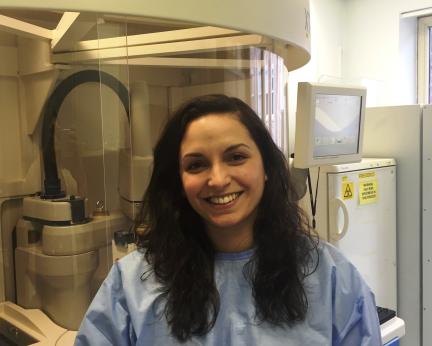Work in the laboratory is organised by means of a weekly rota, divided into various sections such as blood cultures, urine and faeces. Each biomedical scientist and medical laboratory assistant (MLA) is assigned to a particular section. Setting up specimens is normally done by the MLA, whereas interpreting and writing up reports on the results is the responsibility of the biomedical scientist.
I sometimes work late shifts and on calls, when I run the lab alongside another biomedical scientist and two medical laboratory assistants. When you are on call, you may get called out at any time to process an urgent sample, for example cerebral spinal fluid for suspected meningitis.
It’s my responsibility to find out which organism, such as the type of bacteria, fungi or parasite that might be causing an infection. If necessary, I’ll perform antibiotic sensitivity testing on the organism and report the results to the consultant microbiologist.
A typical day includes analysing culture plates with the help of tools such as simple biochemical tests, microscopes and state of the art automated specimen analysers to identify the infectious organisms. Antibiotic testing follows, to determine which antibiotic can be used to fight the infection.
It’s important to keep in close touch with the microbiology consultants, for example where we detect the presence of bacteria in the bloodstream. This condition, known as sepsis, can be fatal if not treated urgently with the appropriate antibiotic.





